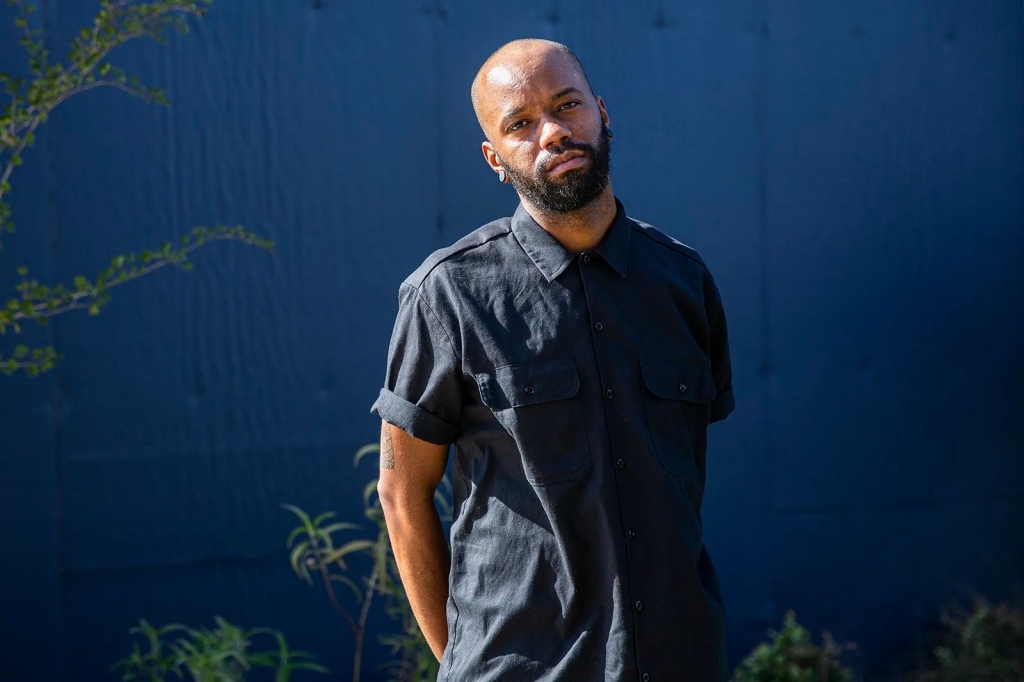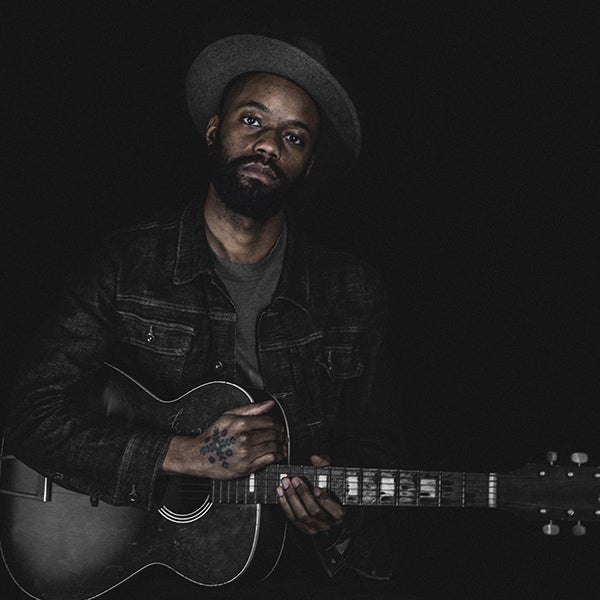By Skye Leppo
For music enthusiasts listening to contemporary folk and Americana radio, the name Buffalo Nichols has been a familiar mainstay over the last two years. The musician’s 2021 self-titled debut album, released via Fat Possum records, has rightfully caught the attention of audiophiles and industry execs alike as his exploration of 21st century Blues music delivers a beautiful tapestry that packs a punch in every line.
The musician’s playing The Abbey Bar in Harrisburg Thursday evening, but spared yours truly a few minutes to catch up via phone earlier this week. The interview below has been edited for clarity and brevity.

How old were you when you first started playing music?
I’ve been playing music close to 18 years, yeah.
All guitar?
Started on guitar; I’ve been playing music seriously for 15 or 16 years.
Your website suggested that folk and blues weren’t the first genre you gravitated toward in your musical career, so I was curious about some of the other types of bands you played in.
I mean right now I’m playing Americana, blues, bluegrass… before that, I played Caribbean, reggae, Latin jazz, also did some West African Music, punk, heavy metal, gospel, R&B — big range (laughs). Pretty much mostly on guitar, sometimes percussion, drums in those bands.
I read somewhere that you traveled through Africa and Europe quite a bit to fuel your creative process. Can you talk about that a little?
That was around 2008 and 2009 through about 2014, did a lot of traveling, just out of curiosity, became a source of inspiration.
The reason why I gravitate towards blues was seeing, especially in Senegal and Poland and Ukraine, seeing people have a strong cultural connection to their music. I felt like I was missing something, so when I came back I was really interested in spending more time with my own culture, seeing what that means to me.
So were you getting involved in different communities and with different musicians when you came back?
To me, the community that mattered was my own. The blues is still a part of the culture in Milwaukee, and Milwaukee music, so I took what I knew and tried to make my own thing. Over the years, I’ve gotten to know people from the known centers of the music in Mississippi, etc., but it wasn’t really something I sought out.
I was asking myself these existential questions; music and culture and art has always been a passion for most of my life. I wasn’t trying to make my career out of it, and the album just sort of grew out of it — it was not really something I was trying to do. It just became the next thing I was curious about, in the same way I became curious about Creole culture and going to West Africa and Senegal. There is a certain value, a traditional value, in Black American music culture; eventually the opportunity to record the album just sort of came out of it.
[Before the album] I was just trying to write songs, and I had so much to pull from that I didn’t really know where to begin. With Fat Possum, made sense to veer towards the blues. I wanted to do something that hadn’t been done before, and created unique ways to be part of the Blues music canon. But also, you know, it’s a pretty conservative genre, there’s not a whole lot of experimentation welcome, so I tried to introduce some unconventional songwriting, my modest contribution to Blues.
Your self-titled album deals with a lot of heavy material, notably loneliness, racism and pain. On listening to tracks like “Living Hell” and then with “Another Man,” so much tragedy and brutality come to mind. When you were recording or meeting with executives, did you meet any resistance to adding these songs to the album?
Blues music industry people love the pain of Black people, but that’s a whole other thing. The real challenge is getting people to listen and see it a certain way; more convenient to ignore those parts of it.
Over time, the blues is coming less and less from the Black community; people like to assume it’s just a generic song of woe and not acknowledge the climate that created the music. To me, it’s inherent in the music.
Who were some of your biggest musical influences growing up, and how has that sort of led you to where you are now?
There were some artists I had always been listening to; it was always something I listened to and played and sought out even before I started playing music seriously, you know, when I was learning guitar. There were some more mainstream blues artists you could find at the record stores and CDs at Best Buy and Sam Goody. My into was sort of BB King, artists like that, but two musicians I kept listening to were Corey Harris and Eric Bibb, you know, contemporary folk blues musicians. Then I started to dig into where some of that music came from and was really getting into Charlie Patton, Blind Willie Johnson, Skip James — so much that I recorded my own take of “Sick Bed Blues” on my album.
I love when getting a little more into a musician or a song brings a whole level of ethnography to it. Like some of these stories would be totally lost if it weren’t captured in a song.
We as a society come to really rely on technology, but we shouldn’t discount the value of oral tradition because while you can hear these songs on YouTube or wherever, but hearing them from a person — a living person — you feel a stronger connection to it and makes you curious about where [the song] comes from, and makes you feel more alive and relevant.
Yeah, for sure. And you hear that in a lot of the folkier stuff. Your recent release, “Meet Me In The Bottom,” brings more rock than the bluesier, folk influences on the rest of your album — can you talk a little about what inspired you to explore this different sonic direction?
I recorded that before I did any of the stuff on the album. When I started, I was just trying to write songs and just wanted to see what i was capable of and ended up doing stuff. That song wouldn’t be too much of a stretch for anyone’s imagination as far as the blues goes; I don’t think people care much about genres as much as the industry does.
Just had all these extra songs laying and was able to put them out.
Does this mean another album is coming this year?
Working on an album for sometime this year, at the end of the year. I’ve got about a dozen unreleased songs; want people to see what kind of artist I am first. I represent the Blues culture in some kind of way.
Can you talk a little about how you came up with the stage name Buffalo?
Was a long time ago; I used to put music on the internet under different pseudonyms, and that was the only one that I used to make blues music. I used it a decade ago and I revived it; [it] seemed like a powerful name and had the imagery of the Buffalo Soldier, especially being sharing Black American culture — that intersects in some ways — the music and the original Buffalo soldiers.
Favorite place to play?
I don’t know; the more I’ve traveled, the more I’ve figured that everything is about timing. It’s all about the right people and the right energy; some places can be really exciting and then disappointing when you come back; some places, you never want to go back to, but you give it another chance and it’s great. I like ‘em all.

_____________________________________________________
If You Go
Event: WXPN Presents and Susquehanna Folk Welcomes Buffalo Nichols with special guest Colin Cutler.
When: Jan. 5, 7 p.m. (Doors open at 6 :30 p.m.)
Where: The Abbey Bar, Appalachian Brewing Co., 50 N. Cameron St., Harrisburg, PA 17101; please note this is a change in venue
Tickets: $24 ($20 for SFMS Members and Central PA Blues Society Members) $10 for Students; Tickets and more info available HERE
_____________________________________________________
Skye is a music enthusiast who grew up in Harrisburg prior to moving to Philadelphia to study and chase a career as a writer. After cutting her teeth at WXPN’s music blog and a few journalism gigs in few newsrooms around PA, she now works in social media, and returned to central PA in 2020. If you’d like to see Skye’s weekly obsessions (read: usually just memes from the indie sleaze rock era), you can
follow Skye on Instagram: @skypelemon
